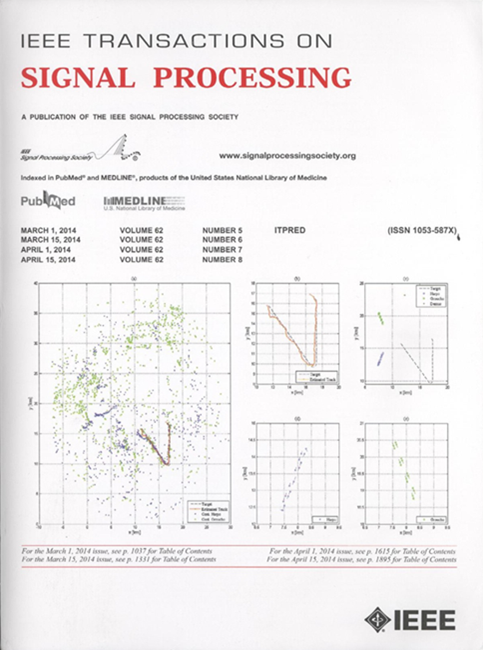Decentralized Optimization on Compact Submanifolds by Quantized Riemannian Gradient Tracking
IF 4.6
2区 工程技术
Q1 ENGINEERING, ELECTRICAL & ELECTRONIC
引用次数: 0
Abstract
This paper considers the problem of decentralized optimization on compact submanifolds, where a finite sum of smooth (possibly non-convex) local functions is minimized by紧子流形的量化黎曼梯度跟踪分散优化
本文研究紧子流形上的分散优化问题,其中光滑(可能非凸)局部函数的有限和被$n$智能体最小化,形成一个无向连通图。然而,分布式优化的效率经常受到通信瓶颈的阻碍。为了缓解这种情况,我们提出了量化黎曼梯度跟踪(Q-RGT)算法,其中代理使用量化梯度更新其局部变量。量化噪声的引入使我们的算法绕过了精确黎曼投影算子的约束(如缩回),进一步提高了迭代效率。据我们所知,这是第一个在存在量化的情况下实现$\mathcal{O}(1/K)$收敛率的算法,与没有量化的方法的收敛率相匹配。此外,我们明确地推导了与量化水平函数相关的分散共识的下界。数值实验表明,Q-RGT的性能与非量化方法相当,同时减少了通信瓶颈和计算开销。
本文章由计算机程序翻译,如有差异,请以英文原文为准。
求助全文
约1分钟内获得全文
求助全文
来源期刊

IEEE Transactions on Signal Processing
工程技术-工程:电子与电气
CiteScore
11.20
自引率
9.30%
发文量
310
审稿时长
3.0 months
期刊介绍:
The IEEE Transactions on Signal Processing covers novel theory, algorithms, performance analyses and applications of techniques for the processing, understanding, learning, retrieval, mining, and extraction of information from signals. The term “signal” includes, among others, audio, video, speech, image, communication, geophysical, sonar, radar, medical and musical signals. Examples of topics of interest include, but are not limited to, information processing and the theory and application of filtering, coding, transmitting, estimating, detecting, analyzing, recognizing, synthesizing, recording, and reproducing signals.
 求助内容:
求助内容: 应助结果提醒方式:
应助结果提醒方式:


